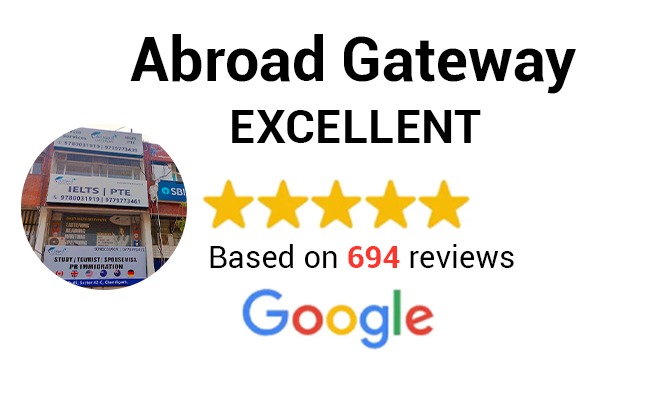Canada is one of the most popular destinations for tourists, business travellers, students visiting family, and friends catching up with loved ones. Known for its breathtaking landscapes, multicultural cities, and welcoming environment, it’s no surprise that thousands of people apply for a Canada Visitor Visa each year.
However, securing a visitor visa isn’t always straightforward. Many applications get rejected due to missing documents, lack of clarity, or insufficient proof of financial stability. If you’re planning a trip, understanding what it takes to meet the visa requirements and how to avoid common pitfalls is crucial.
This guide is designed to walk you through every step of the process, ensuring your application is as strong as possible. Whether you are travelling for tourism, attending a family event, or conducting business meetings, this comprehensive guide will help you navigate the process confidently and efficiently.
What Is a Canada Visitor Visa?
A Canada Visitor Visa, also known as a Temporary Resident Visa (TRV), allows individuals to visit Canada for short stays. It is essential for travellers from countries that require a visa before entering Canada.
1. Common reasons to apply for a visitor visa:
- Exploring Canada’s tourist attractions
- Spending time with family members or friends
- Attending business meetings, conferences, or professional events
- Participating in short-term educational or cultural activities
2. Duration:
Generally, a Canada visitor visa is valid for up to six months per visit. However, the exact length of stay is determined by the visa officer based on the applicant’s travel purpose and their circumstances.
3. Types of visitor visa:
- Single-entry visa: Allows the visa holder to enter Canada only once during the visa validity period.
- Multiple-entry visa: Allows the visa holder to enter and exit Canada multiple times without reapplying, as long as the visa remains valid.
4. Key eligibility criteria:
To successfully apply for a visitor visa, applicants must meet certain requirements:
- Possess a valid passport
- Demonstrate sufficient financial resources to cover their stay
- Show strong ties to the home country (employment, property ownership, or family responsibilities)
- Maintain good health and no criminal record
- Present a clear travel plan with defined intentions and itinerary
Why Canada Visitor Visa Applications Get Rejected
Many visa applications are turned down due to simple errors or incomplete paperwork. Below are some of the most frequent reasons a Canada visitor visa might be refused:
- Incomplete or incorrect documentation: Submitting missing forms, inconsistent details, or documents that do not meet formatting guidelines is one of the leading causes of rejection.
- Insufficient financial proof: Immigration officers need assurance that applicants have enough funds to cover their trip expenses and would not rely on Canadian public services during their stay.
- Unclear ties to home country: Applicants must convincingly demonstrate strong connections to their home country that will motivate their return after visiting Canada.
- False or inconsistent information: Providing inaccurate, misleading, or conflicting details can result in immediate denial of the visa.
- History of previous Visa refusals: If applicants had a visa application rejected in the past without adequately addressing the reasons, it may negatively affect their current application.
Step-by-Step Guide to Ensure Canada Visitor Visa Approval
Step 1: Gather All Required Documents
The success of your Canada Visitor Visa application largely depends on submitting complete and well-organized documents. Make sure you prepare the following:
- A valid passport that remains active for at least six months beyond your intended return date.
- Bank statements, pay slips, or employment verification letters that demonstrate your financial capability to cover your trip.
- A travel itinerary, including confirmed flight tickets, hotel reservations, and planned activities.
- Invitation letters from family or friends if your visit includes attending a personal event or gathering.
- Proof of strong ties to your home country, such as property ownership documents, employment contracts, or evidence of family commitments.
Step 2: Complete the Application Form Accurately
The IMM 5257 form plays a crucial role in your Canada visitor visa application.
- Ensure no fields are left blank unless specifically directed to do so.
- Double-check all details provided in supporting documents.
- Avoid spelling mistakes.
- Use consistent date formats throughout the form.
Step 3: Provide Strong Proof of Funds
The visa officer needs to be assured that you have sufficient funds to cover the trip without relying on Canadian resources. Avoid submitting suspicious or unverifiable documents.
- Typically, you should show access to at least CAD 10,000 for a six-month stay, though this varies depending on your travel plan and accommodation
- Acceptable documents include:
- Bank statements from the last 4–6 months
- Employment letters or salary slips
- Fixed deposits or investment proofs
- Proof of assets (property, business ownership)
Step 4: Show Strong Ties to Your Home Country
Provide clear evidence of your commitments back home to strengthen your case. Visa officers want assurance that you will return home after your visit. To demonstrate this:
- Include employment contracts, business ownership documents, or letters from employers.
- Provide proof of family responsibilities, such as marriage certificates or dependent children’s school enrollment.
- Attach property ownership papers, loan documents, or other proof of significant assets.
Step 5: Write a Clear and Concise Cover Letter
Your cover letter is your chance to explain your purpose of visit and convince the visa officer of your genuine intention to return home. Your cover letter should include:
- The purpose of the visit (such as tourism, visiting family, or attending business meetings).
- The expected duration of stay in Canada.
- Confirmation of sufficient funds to support the visit.
- A list of all documents submitted with the application.
- A courteous request for the visa officer to kindly consider the application.
Step 6: Meet Health Requirements
In certain cases, applicants must complete a medical examination as part of the visa process. Complete your medical examination in advance and submit the reports as instructed.
- Medical exams are required if you plan to stay for more than six months or if you’re coming from certain countries
- The examination should be carried out by an authorised physician.
- Conditions such as untreated health issues or communicable diseases could result in visa denial.
Step 7: Address Criminal History (if applicable)
If you have a criminal record, you must be transparent. Failure to disclose criminal history can result in permanent visa denial.
- Declare any past convictions, charges, or arrests
- Provide court documents and police clearance certificates
- Explore waiver options if applicable
Step 8: Be Transparent About Travel History
Visa officers review your past travel to ensure consistency and compliance. Avoid hiding information to prevent suspicion.
- List all previously issued visas, including denials
- Provide explanations for gaps or unusual trips
- Show that you have adhered to immigration rules in other countries.
Step 9: Prepare for Biometrics and Interview (if applicable)
If required, you must provide biometrics and may be asked to attend an interview as part of the visa process.
- Follow instructions carefully
- Carry all required documents to your appointment
- Be prepared to answer questions about your itinerary and finances
How to Handle Canada Visitor Visa Rejections
Learn from rejection and use it as an opportunity to refine your approach.
- Carefully read the refusal letter to understand the reasons
- Address the missing documents or concerns in your next application
- Provide additional proof of financial stability, ties to home, or travel purpose
- Consider consulting professional visa experts to strengthen your next application and improve your chances of approval.
Start your application with confidence, knowing you’ve covered every requirement. A well-prepared application is not just about paperwork—it’s about building trust and demonstrating your commitment to returning home after a memorable trip to Canada!
Get Expert Help with Your Canada Tourist & Visitor Visa – We Handle It All!
Whether you’re applying for the first time or dealing with a previous refusal, Abroad Gateway is here to make the process smooth and stress-free. Our team of experts will guide you through every step – from document preparation to submission and appeals. Trust us to handle your visa with precision and care so you can focus on planning your trip.
Start your journey today – contact Abroad Gateway and let’s secure your Canada visa with confidence!






